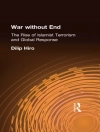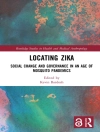In spite of the gravity of the problem of mass unemployment and its periodic recurrence in industrial societies, few scientific studies have been undertaken which serve to define the impact of plant closings on workers, families, and the community; to evaluate individual group, or community responses to closings; and to offer suggestions for the future.
Shutdown at Youngstown meets this need. It presents the findings of a multidisciplinary, scientific study of the closing of the steel mills in Youngstown in 1977 which put 5, 000 persons out of work. Research reported in the text is based on personal interviews, social indicator data, and data from health and human service agencies. The authors conclude by developing a public policy for dealing with plant closings and the crisis of mass unemployment.
Daftar Isi
Individuals Interviewed
Figures
Tables
Acknowledgments
1. Introduction
Part 1. Background
2. Black Monday: The Closing of Youngstown Sheet and Tube
Part 2. Impact of the Closing
Overview
3. The Psychological Impact of the Shutdown
4. The Community Impact of the Shutdown
Part 3. Responding to the Crisis
Overview
5. Reemployment, Retraining, and Relocation
6. Other Responses: Individuals and Agencies
Part 4. Social Policies for Mass Unemployment
Overview
7. Employment Policy
8. Human Services Policies
9. The Longer Run
Appendix A. Methodology
Appendix B. Politics of a Plant Closing
Appendix C. Measurement of Mental Health
Appendix D. Euology to a Shutdown Steel Mill
Notes
References
Index
Tentang Penulis
Terry F. Buss is Director of the Center for Urban Studies at Youngstown State University. F. Stevens Redburn is Social Science Research Analyst at the Office for Policy Development and Research, U.S. Department of Housing and Urban Development.












